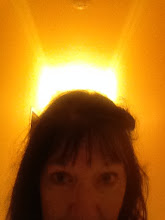Yes Pliny, but aren't all transformations unlikely? Nevertheless, I know that this is true.
And how, pray, do you know that it is true?
Because, Pliny, I read it , not in Wikipedia but in Brewer's Dictionary of Phrase and Fable.
Perhaps, then, it was a fable.
No, it is a phrase, which was found in the old hornbooks, I said primly. The character was added after the 26 letters of the alphabet, and was called ampersand as a corruption of 'and per se and'. The ampersand itself is an adaptation of 'et', which as you know means 'and' in Latin.
Nonsense, said Pliny. How do you get from 'et' to that squiggle?
You don't have to. You only need to get from the squiggle back to 'et'.
A good point. And what may I ask is a hornbook?
It's a thin board with a handle, as a backing to a sheet of vellum, and covered by a thin piece of transparent horn. Medieval schoolchildren used them for their lessons.
How delightful, said Pliny. Was anything else written in them?
Numbers, the Lords Prayer, and an exorcism.
Basic, and exemplary, said Pliny.
Subscribe to:
Post Comments (Atom)

No comments:
Post a Comment